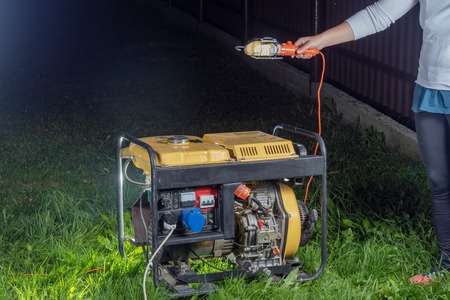
When it comes to power generation, diesel generators have long been a reliable source of energy, particularly in areas with unstable grid infrastructure or during emergencies. Despite their conventional nature, diesel generators have undergone significant technological advancements in recent years, making them more efficient, eco-friendly, and versatile. In this article, we delve into the latest innovations shaping the landscape of diesel generators and their implications for the UK.
Evolution of Efficiency:
Traditionally, diesel generators were known for their robustness but often criticised for their fuel consumption and emissions. However, advancements in engine design and control systems have revolutionised efficiency. Modern diesel generators boast higher power output per unit of fuel, resulting in reduced operating costs and environmental impact. Improved combustion processes, coupled with sophisticated electronic controls, optimise fuel consumption while maintaining reliability.
Eco-Friendly Solutions:
In an era where environmental concerns are paramount, diesel generators are adapting to meet stringent emissions regulations. The integration of advanced exhaust after-treatment technologies, such as selective catalytic reduction (SCR) and diesel particulate filters (DPF), significantly reduces harmful pollutants. These innovations ensure compliance with environmental standards while preserving the versatility and reliability of diesel generators.
Smart Monitoring and Control:
The advent of IoT (Internet of Things) and AI (Artificial Intelligence) has transformed how diesel generators are monitored and controlled. Remote monitoring systems equipped with sensors and connectivity features enable real-time performance tracking and predictive maintenance. AI algorithms analyse data patterns to anticipate potential issues, allowing for proactive intervention and minimising downtime. This level of automation enhances reliability and optimises operational efficiency, especially in critical applications.
Hybridisation and Energy Storage Integration:
To address the growing demand for cleaner and more sustainable power solutions, diesel generators are increasingly being integrated into hybrid systems. Coupled with renewable energy sources such as solar or wind, diesel generators serve as backup power sources, ensuring continuous supply during fluctuations or low renewable output. Energy storage technologies, such as lithium-ion batteries, further enhance system resilience and efficiency by storing excess energy for later use or providing instant power during load spikes.
Digital Twin Technology:
Digital twin technology, a virtual replica of physical assets, is revolutionising the design, simulation, and optimisation of diesel generators. By creating a digital twin, engineers can conduct comprehensive performance simulations, analyse operational data, conduct tests and identify potential improvements without the need for physical prototypes. This approach accelerates development cycles, enhances product reliability, and facilitates customisation to meet specific customer requirements.
Sustainable Fuel Options:
While diesel remains the primary fuel for generators, advancements in alternative fuels offer promising alternatives. Biofuels derived from renewable sources, such as vegetable oils or animal fats, reduce carbon footprint and dependency on fossil fuels. Synthetic fuels produced through processes like Fischer-Tropsch synthesis offer cleaner combustion and compatibility with existing diesel infrastructure. These sustainable fuel options pave the way for a greener future without compromising reliability or performance.
Grid Integration and Demand Response:
In addition to backup power, diesel generators play a crucial role in grid stability and demand response initiatives. Through smart grid integration, generators can participate in demand-side management programs, adjusting output based on grid conditions or price signals. This flexibility helps balance supply and demand, mitigate grid congestion, and support the integration of intermittent renewable energy sources. Diesel generators thus contribute to a more resilient and efficient energy infrastructure.
Continuing Technology Improvement
The evolution of diesel generators underscores their enduring relevance in the ever-changing energy landscape. From improved efficiency and emissions control to smart monitoring and integration with renewable technologies, innovations are reshaping the capabilities and sustainability of diesel generators. In the UK and beyond, these advancements are not only enhancing reliability and performance but also driving towards a cleaner and more resilient energy future.
As technology continues to evolve, diesel generators will remain a cornerstone of power generation, adapting to meet the challenges of tomorrow while powering the world today.
